Text
i know its utterly boring but wow I miss my lovely ex gf she was so delicuous and loving and sweet I am so frustrated that I was too full of rubbish to love her properly!! feeling too miserable to love is so boring. so so boring. holding her is such a pleasure and a treat and i haven't for months. okay maybe quitting smoking means i have to reckon with the loss of her love. ffs
0 notes
Text
thinking about noah’s nameless wife takes inventory
24K notes
·
View notes
Text

I adore to paint sphynxes or dog-people-hybrids. watercolor on paper
389 notes
·
View notes
Text
[“Proving self-defense could prevent prosecution and punishment of people who use violence to protect themselves. To successfully argue self-defense, a person must show that they used force in response to a reasonable fear of imminent or immediate serious bodily harm or death and that the amount of force used was proportionate to the threat posed. They may also have to prove that they did not use force first and attempted to retreat or flee before using force. The concept of “reasonableness” often has both subjective and objective components: the person must prove that they subjectively believed that an imminent threat of death or serious bodily harm existed at the time they acted and that a reasonable person assessing the situation would share that belief. If a person who uses force can establish these elements, their use of deadly force is legally justifiable, the equivalent of a finding that no crime has been committed.
But self-defense has long been complicated in cases of gender-based violence, particularly for women who kill their partners. At common law a woman who killed her husband could be convicted of petit treason, eliciting more serious punishment than if she had killed anyone else. Killing in response to a husband’s physical abuse did not excuse the conduct, because husbands had the right to physically discipline their wives. Past violence was not relevant to a claim of self-defense. By the late 1970s defense attorneys representing women who killed their partners regularly advised them to claim temporary insanity rather than self-defense. Self-defense was regarded as especially inappropriate in “nonconfrontational” cases. As law professor Ellen Yaroshefsky has explained: “In 1980, the claim of self-defense in a case where the aggressor was not in the act of attacking the woman was regarded as simply not viable.”
Women faced a number of obstacles in making self-defense claims. Self-defense law contemplated two men of similar size and strength facing each other in a fair fight. The law failed to account for size and strength differentials between men and women, which sometimes made it appear that women had used disproportionate force, especially when women used weapons to make up for those disadvantages. By looking only at the specific incident in the case, self-defense law precluded women from explaining how a history of abuse affected their perceptions of the imminence or immediacy of death or serious bodily injury. This issue often arose in cases where a woman acted after an abusive incident or when the person killed was sleeping (although most cases where women argue self-defense involve killings during a confrontation). Similarly, without context, the reasonableness of the woman’s perception of the level of danger might be questionable. In many jurisdictions the person using force was required to retreat from the danger if at all possible, even if that threat came from within the person’s home.
Bringing a successful self-defense claim was a particular challenge for Black women, whose victimization is often minimized and who appear to racist judges and jurors as “just another violent black person, shooting it out.” In a 1978 article activist and author Assata Shakur described Lucille, a Black woman convicted of killing her partner despite “medical records which would prove that she had suffered repeated physical injuries as the result of beatings by the deceased,” including a mutilated arm and a partially severed ear. “The District Attorney made a big deal of the fact that she drank,” Shakur wrote. “And the jury, affected by t.v. racism, ‘law and order,’ petrified by crime and unimpressed by Lucille as a ‘responsible citizen,’ convicted her.” The failure to understand the relationship between intimate partner violence and women’s use of force led judges and juries to reject women’s self-defense claims. A 1990 study of women subjected to abuse who killed their partners found that the majority had been convicted because they could not establish the elements of self-defense.”]
leigh goodmark, from imperfect victims: criminalized survivors and the promises of abolition feminism, 2023
74 notes
·
View notes
Text
[“It is not unusual for people not to be able to handle or tolerate having what they think they want. Beneath the urge to have or not to have is usually another layer that navigates our lives. There is an unseen, unconscious part of us that might go against our conscious goals and even attack and undermine them. In fact, everything we don’t consciously know about ourselves has the power to control and run our lives, in the same way that the riptides below the surface of the ocean are its most powerful forces.
We are especially conflicted when it comes to change. Behind the wish to make money, have a career, or have children, we might locate resistance to change, a hidden ambivalence about growing up, and a struggle with separation and loss. We might want a romantic relationship but at the same time resist or reject it, often because we need to protect ourselves from being vulnerable, abandoned, out of control, or consumed. Some are unconsciously loyal to their original families (particularly if they perceive that family as superior to other families), which makes it hard for them to belong to anyone else. Others feel emotionally responsible for one of their parents and therefore anxious about separating and leaving them. They maintain their childhood structure and worry about changing their position, being loyal to their family myths and legacies. A change is a slight goodbye to our past: to our childhood, to our familiar roles, to our known selves. To develop, to create, is to separate and live the future as opposed to cherishing the past. An unprocessed past will not allow us to move forward. It will hold us as the gatekeepers of our history.”]
galit atlas, from emotional inheritance: a therapist, her patients, and the legacy of trauma
347 notes
·
View notes
Text
[“In her laboratory, researcher Beatrice Beebe and her team at Columbia University invite the parent to play with the infant as they do at home. Using two cameras—one filming the baby, who is placed in an infant seat opposite the mother, and the other focused on the mother’s face and upper torso—they generate a split-screen view of both parent and infant.
The research focuses on a few aspects of the verbal and nonverbal interactions, such as their gaze toward and away from each other (parents typically look at their infants while the infants cycle between looking and looking away, which allows them to regulate the intensity of arousal created by the eye contact). It detects their facial expressions, as well as their vocalizations, and analyzes how coordinated their facial expressions and movements are. The researchers listen to and code the vocal back-and-forth communication and the turn taking between parent and infant in that exchange.
Watching the split screen, Beebe points out that caregivers tend to tune in to the infants’ movements, gestures, gazes, and expressions, and that the babies are responsive to every nuance of the mothers’ behavior. There is a rhythm co-created between the infants and their caretakers. The parent usually looks happy when her infant smiles and appears concerned when the infant cries. She reduces the intensity of her behavior when the baby turns its head away; she lowers her voice when the infant seems distressed; and she tries to excite the baby when it looks back to her. The parent talks to her baby and then gives the baby a turn. The baby responds vocally in her own way. They each follow the other’s rhythm of taking a turn. Ideal exchange between parents and their infants doesn’t mean absolute synchronization or “perfect” matching and superhigh responsiveness. Rather, a dynamic communication evolves that includes moments of mismatch and potential misunderstanding, followed by moments of re-attunement and repair.
These studies highlight the fact that ruptures are an inevitable part of every relationship. In fact, in 1989 Jeffrey F. Cohn and Edward Z. Tronick indicated that imperfect interaction and mismatching of communication are the rule rather than the exception. They show that a “good enough” parent is slightly mismatched and desynchronized with their infant 70 percent of the time and in synch with them only 30 percent of the time. They suggest that a good relationship is the result not of a perfect level of attunement, but rather of successful repairs. The moments when the parent re-attunes to the baby are important. They are the foundation for future trust, where both parent and infant learn that they can go back to a rhythm that allows them to be seen and understood by the other.”]
galit atlas, from emotional inheritance: a therapist, her patients, and the legacy of trauma
153 notes
·
View notes
Text
very often it's crystal clear that the meanest most hateful and vitriolic people you come across online are just acting like that because they are severely going through it irl and are just kinda lashing out at random in an attempt to expel any of the white hot burning rage in their chests. probably the most effective way to get them to stop doing what they're doing is to be as warm and level headed as possible, engage with them completely on the level, take them seriously, and help them calm down. doing what feels like the natural thing of matching their tone and publicly telling them off for being a tar pit Directly At You will not help even a little bit, it'll just make them feel worse and confirm their conception that the entire world wants to hurt them so they have to make sure they hurt it first. unfortunately if you try to do the decent thing and deescalate then they may spend the entire time running at you with scissors over and over again as they actively try to stab you as much as possible.
185 notes
·
View notes
Text
[“Pop culture tells us that a real woman knows how to use her body to get what she wants, wielding the power of attraction, seducing with her animal magnetism. But I ask, how much power is there in being a carrot on a stick that is dangled in front of someone? And I can’t help but notice that when men try to flatter us, they often use words like “enchanting” and “mysterious.” But to me, those words seem like a subconscious attempt by them to place some distance between us.
So it bothers me when I hear women buy into a similar mysticism, as they try to empower us by proclaiming that we are magical, that we are mother earth with the ability to give birth, bearing life cycles that follow the moon like the tides of the ocean. But don’t they see the danger in buying into the idea that we are supernatural beings? For if we call ourselves “goddesses,” then there is no need for anyone to treat us like human beings.
I believe that this is where second-wave feminism came to a grinding halt: When we got caught up in the myth that women are special because of our biology. Because when we take pride in how fundamentally different we are from men, we unknowingly engage in a dangerous game of opposites. For if men are big, then women must be small. And if men are strong, then women must be soft. And it becomes impossible to write a loud and proud poem about what it means to be a woman without either ridiculing men or else pulling the rug out from under ourselves. And being a woman is contradiction enough without being both a transsexual and a dyke like myself.
I often feel like the monkey in the middle: On one side of me are older lesbians who insist that I am still a man, as if being born male was some awful disease that has infected my blood and my bones permanently. On the other side of me are younger dykes who are infatuated with trans men and tranny bois, yet secretly confess to friends that they are disturbed by trans women because we act so “effeminate.” I wonder how they can be so oblivious to their own arrogance, for anyone who admires trans men but dismisses trans women is simply practicing another form of sexism. I used to think it was a contradiction that some dykes abhorred me for my masculinity while others hated me for my femininity, until I realized that being a woman means that everyone has a stake in seeing what they want to see in me.”]
julia serano, from excluded: making feminist and queer movements more inclusive, 2013
2K notes
·
View notes
Text
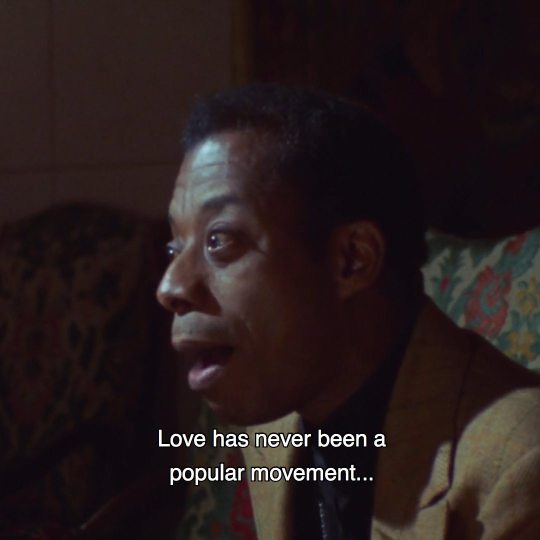

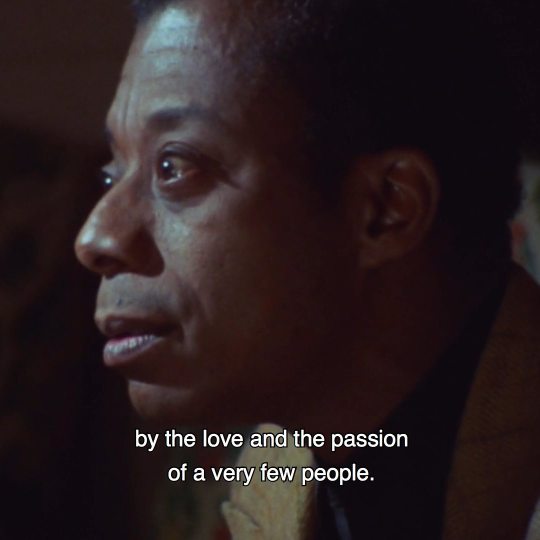


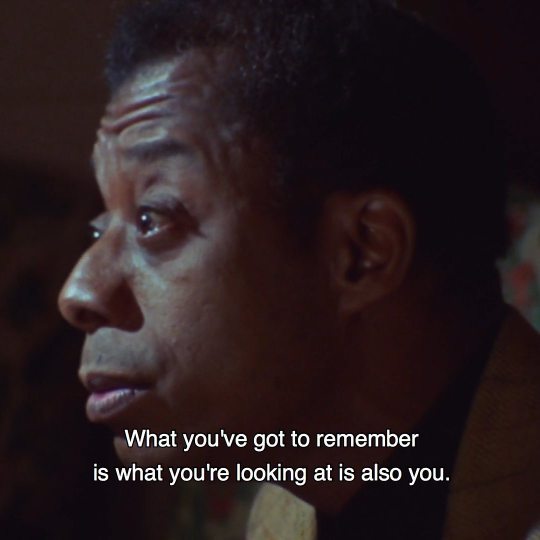


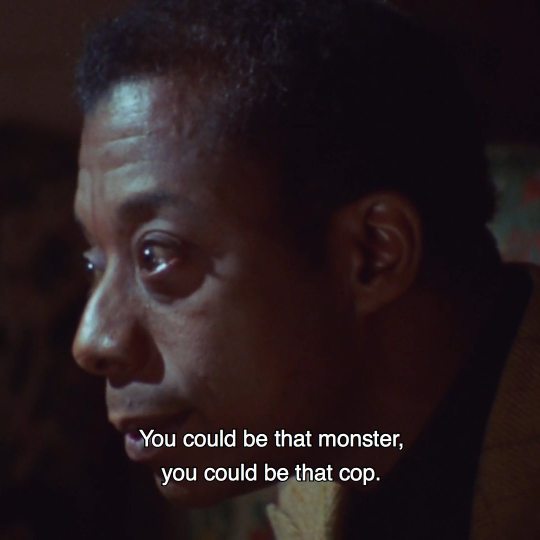
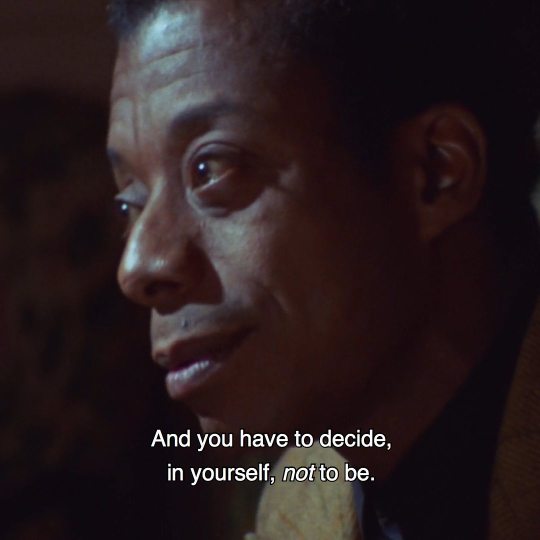
Meeting The Man: James Baldwin in Paris
(via Mubi)
121K notes
·
View notes
Text

Resmaa Menakem, My Grandmother’s Hands: Racialized Trauma and the Pathway to Mending Our Hearts and Bodies
4K notes
·
View notes
Text








My zine I made to sell for family campaigns I love how it came out
2K notes
·
View notes
Text
i love illegal immigration like yes bitch get in here
43K notes
·
View notes
Text
fuuuuck i just realized that the future idealized version of myself cant exist without current me being the catalyst for change and doing hard things. has anybody heard about this
2K notes
·
View notes
Video
One of my friends was selling his gameboy controlled sewing machine so of COURSE I had to buy it
132K notes
·
View notes
Text
a favorite memory:
when i was in fifth grade, we read a book in school where a young girl in prehistory finds a dolphin skeleton. and i was so taken in by the description of the bones, how there were fingers in the fins, that i came home to my dad and told him "i think that when humans came out of the oceans, dolphins did, too, but they went back in."
my dad went upstairs and came back with an issue of analog magazine, the sci-fi digest he read religiously, and handed it to me.
"here," he said. "you're ready for this."
44K notes
·
View notes
Text


Max Wolf Valerio, Matthew Rice and David Harrison (left to right both photos) standing in front of a picture of them all marching in the first ever FTM pride contingent in San Francisco Pride 1994 (July 2023)
25K notes
·
View notes